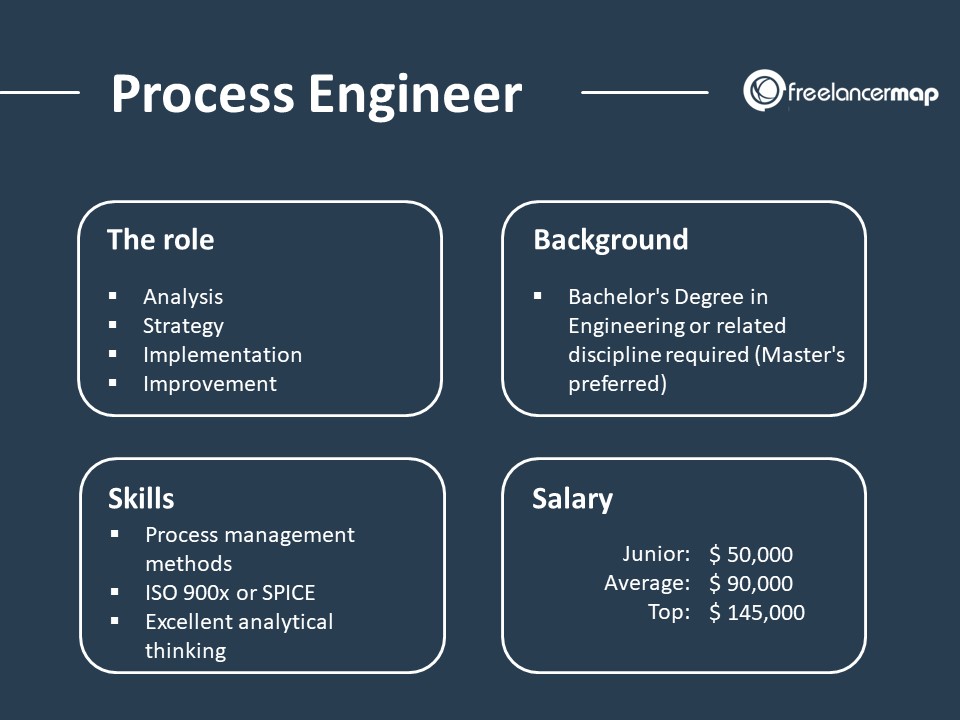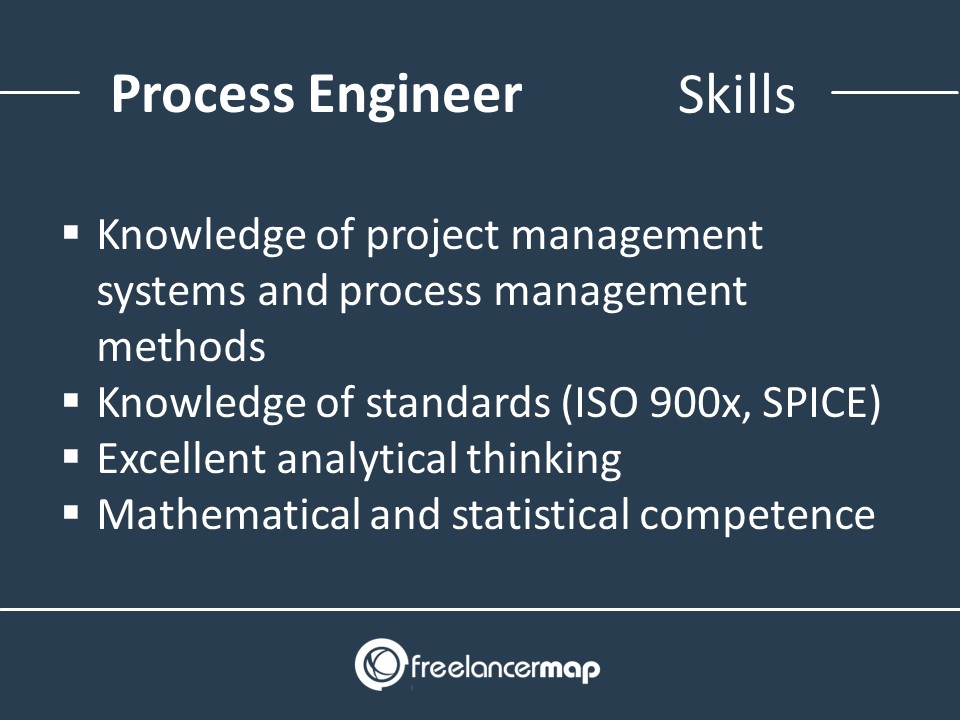A Process Engineer works actively on improvement projects in companies and is often responsible for project management in addition to implementation and documentation. What does it take to become a process development engineer? Let’s take a closer look!
The Role of a Process Engineer


Process engineering at a core level is simply the application of basic rules and principles in order to simplify, speed up or improve a given process in place. It is the method of analyzing, altering, and ultimately enhancing a process in order to amplify the larger system of which the process is a part.
Since Project Engineering can be applied to a vast range of industries, you’ll find Process Engineers or Process Development Engineers in virtually every industry out there. E.g. there are many process engineer jobs in oil and gas but also in the chemical industry or manufacturing.
They are, as the name suggests, responsible for most ongoing processes.
A process engineer is, therefore, someone who optimizes and improves existing processes. At times, process engineers may also completely revolutionize or at least considerably develop an entire process. This is achieved by consistent analysis of a given system and its processes, its efficiency, and target or intended results.
Looking for a Process Engineer?
Responsibilities
Process engineers develop specific procedures and concepts that can be used to improve existing internal processes.
To this end, they create process models, apply them to the specific processes and then check their efficiency and effectiveness. After the results deliver values for certain defined key figures, measures are derived which have the goal of increasing the company’s success.
Further tasks of process engineers include training on the developed measures. They are often responsible in leading positions for a process team, whose work they coordinate and whose results, successes and failures they report and justify to the management level.
What are the tasks of a process engineer?
- Preparation of target vs. actual comparisons
- Analysis of existing processes in terms of efficiency and effectiveness
- Derivation of measures
- In-house training sessions
- Analyze workflows within and across all departments to determine how the entire company can work better together.
- Review the KPI monitoring systems and determine ways to improve their ability to maintain company operations.
- Create an analytical process that justifies business decisions.
What is the Process Engineer Skillset? Hard and Soft Skills
Process engineers are very familiar with project management systems and standards such as ISO 900x, SPICE. They have in-depth knowledge in their respective fields, such as information technology.
They also use process management methods and have expertise in applied statistics, stochastics and rationalization. As they can be found in many different industries, the technical skills and requirements are broad and can include thermodynamics as well as pure personnel management or material sciences.
Soft skills that benefit engineers include – an extraordinary ability of abstract, logical and analytical thinking, as well as the ability to confidently act as a leader and motivate one’s, own team.


What does a process engineer need to know?
- Dealing with project management systems and process management methods
- Knowledge of standards (ISO 900x, SPICE)
- Excellent analytical thinking
- Leadership qualities
- Ability to work in a team
- Mathematical and statistical competence
Background and Prerequisites
Process engineers almost always come from academic backgrounds. They come from a wide variety of engineering courses. These range from controlling and financing to supply management and complex physics.
There are practically no career changers here and due to the very scientific way of working and the requirement of an engineering degree, the job description is impenetrable for non-academics.
The courses of study that explicitly prepare students for the position of process engineer often include a high proportion of business management topics.


Specific background usually listed on Process Engineer Jobs:
- Bachelor’s Degree in Engineering or related discipline required (Master’s preferred)
- 5+ years in quality or business process engineering
- Six Sigma or LEXN preferred
- Impeccable math and statistical analysis skills
- Excellent eye for detail
- Proven history in improving supply chain efficiency
- Must be comfortable with integrating new technology into an existing business environment
- Supervise and manage the process team to develop continuous improvement of the quality system to achieve the agreed goal set.
- Ability to calculate, create, and implement new business processes.
Looking for a new job?
Salary
Process engineers can start their careers with an annual salary of just under $50,000. Senior process engineers can earn up to $145,000. On average, they earn around $90,000 a year.
Individual salaries can vary depending on the size and location of the company. The importance of the respective processes to be optimized for the company also plays a role in salary determination.
How much does a process engineer earn?
| Junior | $50,000 |
| Average | $90,000 |
| Senior | $145,000 |
How much does a freelance Process Engineer charge?
| Average rate Process Engineers (2022) | $89/hr |
The average hourly rate amongst freelance Process Engineers is $89/hr.
Freelance rates in Process Engineering range between $63 and $114 for the majority of freelancers.
If we consider an 8-hour working day at $89/hour, the daily rate for freelance Process Engineers is around $712/day.
